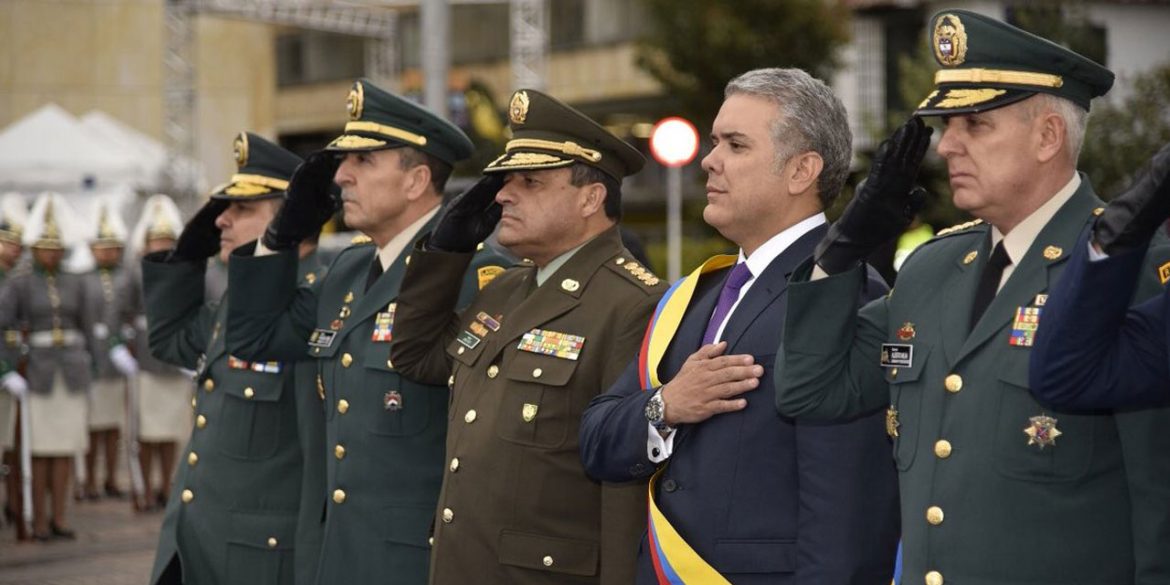Soldiers who have reported corruption or human rights violations by Colombia’s army commanders have suffered assassination attempts, death threats and constant persecution, according to weekly Semana.
Officers are additionally shadowed by counterintelligence agents, the magazine found out when one of its sources confronted one of the spies during an interview in a Bogota shopping mall.
Colombia’s war crimes tribunal last week ordered emergency security measures for 11 officers testifying against former army commander General Mario Montoya and former Colonel Hernan Mejia amid fears their lives could be in danger.
‘I don’t know when, but I know I’m going to die, honorable magistrates’
The reported violence and intimidation come amid war crimes tribunal investigations into the military’s mass killings of civilians, multiple investigations into embezzlement and recent reports that army chief General Nicacio Martinez’ orders could revive the mass violation of human rights.
But instead of cooperating with justice to restore the military’s reputation, corrupt elements within the military are incurring in even more criminal activity to cover up the growing pile of scandals, more than 20 members of the military told Semana.
One officer who had testified against Montoya barely survived an assassination attempt after which he reportedly received a phone call in which he was told: “You got away this time, rat.”
How Colombia’s former army chief is drowning in his own buckets of blood
The child of another officer was almost kidnapped had it not been for the bus driver who saved the girl from her kidnapper.
One of my clients’ wife was caught while entering her house and was told to tell her husband that if he kept talking they were going to kill him and his whole family.
Soldier’s anonymous defense attorney
The violence and intimidation have created a climate of fear among soldiers and commanders who do nothing but report the alleged criminal activity of corrupt commanders.
Colombia’s war crimes tribunal last week ordered emergency protection measures for witnesses in the cases against General Mario Montoya and Colonel Hernan Mejia, who are respectively charged with and convicted of playing major roles in the euphemistically called “false positives” scandal and intimate ties to drug trafficking paramilitary warlords.
Colonel Hernan Mejia: from The Americas’ Best Soldier to one of Colombia’s most feared war criminals
“I was sent pictures of the monitoring of my underage children at school, as well as photos of my parents, who are elderly people,” one officer told Semana.
“While I was on duty, I was left anonymous letters at the door of my house in which they said that they were going to kill me and my whole family for being a rat,” another officer who has been testifying about the army’s extrajudicial executions said.
A senior commander told the magazine that many soldiers and commanders’ “telephones are wiretapped” in the army’s apparent witch hunt to find out who talked to the New York Times.
They even pay people at the Prosecutor General’s Office to illegally wiretap us to know what we are saying and to who.
Anonymous commander
Also Semana’s journalists and their families received notes with intimidating messages and were being shadowed, the magazine said.
The shadowing is permanent. You can’t move from your office to your home without having a couple of guys following you to see who you’re talking to or meeting with.
Anonymous commander
Many of Semana’s sources said they were fed up with the corruption and refuse to return to the killing of civilians to inflate army results so desperately wanted by Martinez.
I have colleagues, friends, who lost their freedom, their families and all their belongings to pay lawyers for having complied with those orders in the past. I don’t want that to be my destiny and I’d rather retire than comply with what they’re asking of us.
Anonymous commander
The majority of the 200,000 men and women who make up Colombia’s military are trying to do their job and protect the country’s citizens, but some of the commanders promoted by President Ivan Duque in December appear to have different priorities.


